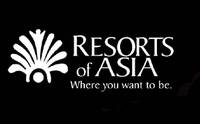History : Kabul, Seat of Afghan Power
Kabul, modern Chronology
Kabul first appears in the historical record with mention of the Kubha River at the time of the Aryans around 1200BC.
1928
In the 20th Century Kabul was at the vanguard of Afghanistan's faltering modernisation programme. King Amanullah slowly introduced electricity and girls' schools, built his palace at Darulaman on the south-west outskirts of Kabul, and would drive around the city in his Rolls Royce. Amanullah ruled until 1928 when he was deposed by the Tajik rebel Bacha-i-Saqao in 1928. The Bacha held sway in Kabul for nine months terrorising its populace until Pashtun rule was restored under Nadir Shah, Amanullah's half-brother.
1932-1950s
Kabul continued to develop, opening its university in 1932, and paving its streets in the 1950s with Russian aid. Following the communist take-over, Kabul boomed again, its well-stocked shops and prosperous citizens marking a sharp contrast against the war-ravaged countryside.
1992
It was only after the Soviet withdrawal that Kabul began to feel the effects of war. The Najibullah government held on to power until April 1992, when the city finally fell to the mujahideen forces.
1996
The Taliban captured Kabul in September 1996, and were initially welcomed as restorers of peace and the rule of law. The public lynching of ex-President Najibullah (who had taken refuge with the UN) quickly squashed this notion. The Taliban were a movement of the countryside and largely illiterate, who viewed the educated Kabulis with severe distrust. The city was placed under the rule of a six-man shura, and Afghanistan's effective capital returned to Kandahar. Kabul suffered the worst repression of anywhere under Taliban rule.
2001
The Taliban fled Kabul in November 2001 in the face of American bombing, and the Jamiat-dominated Northern Alliance walked back in to the city. The Bonn Agreement mandated the creation of the multinational military force ISAF to police the streets of Kabul, which has done much to allay the fears of its residents of a return to the anarchy of the nineties. Hamid Karzai now holds power from Kabul's Arg fortress, although his writ barely extends beyond the city limits and he is often referred to as the 'Mayor of Kabul'.
Kabul first appears in the historical record with mention of the Kubha River at the time of the Aryans around 1200BC.
1928
In the 20th Century Kabul was at the vanguard of Afghanistan's faltering modernisation programme. King Amanullah slowly introduced electricity and girls' schools, built his palace at Darulaman on the south-west outskirts of Kabul, and would drive around the city in his Rolls Royce. Amanullah ruled until 1928 when he was deposed by the Tajik rebel Bacha-i-Saqao in 1928. The Bacha held sway in Kabul for nine months terrorising its populace until Pashtun rule was restored under Nadir Shah, Amanullah's half-brother.
1932-1950s
Kabul continued to develop, opening its university in 1932, and paving its streets in the 1950s with Russian aid. Following the communist take-over, Kabul boomed again, its well-stocked shops and prosperous citizens marking a sharp contrast against the war-ravaged countryside.
1992
It was only after the Soviet withdrawal that Kabul began to feel the effects of war. The Najibullah government held on to power until April 1992, when the city finally fell to the mujahideen forces.
1996
The Taliban captured Kabul in September 1996, and were initially welcomed as restorers of peace and the rule of law. The public lynching of ex-President Najibullah (who had taken refuge with the UN) quickly squashed this notion. The Taliban were a movement of the countryside and largely illiterate, who viewed the educated Kabulis with severe distrust. The city was placed under the rule of a six-man shura, and Afghanistan's effective capital returned to Kandahar. Kabul suffered the worst repression of anywhere under Taliban rule.
2001
The Taliban fled Kabul in November 2001 in the face of American bombing, and the Jamiat-dominated Northern Alliance walked back in to the city. The Bonn Agreement mandated the creation of the multinational military force ISAF to police the streets of Kabul, which has done much to allay the fears of its residents of a return to the anarchy of the nineties. Hamid Karzai now holds power from Kabul's Arg fortress, although his writ barely extends beyond the city limits and he is often referred to as the 'Mayor of Kabul'.



0 Comments:
Post a Comment
<< Home